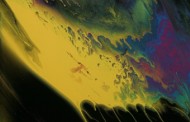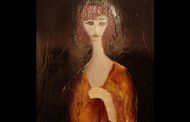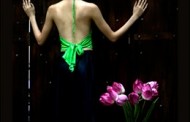KITARO – Matsuriby
 Click on picture for Video
Click on picture for Video
Xin Bấm vào Hình Trên để Xem Video
Hơn 4 triệu người đã vào xem
Masanori Takahashi (高橋正則 Takahashi Masanori?), better known as Kitarō (喜多郎?), (February 4, 1953) is an award winning Japanese musician, composer and multi-instrumentalist who is regarded as one of the pioneers of new age music.
Kitaro moved to Tokyo to experience and become a part of the music scene, and it was there that he discovered the synthesizer. His first synthesizer was analog, and he recalls having “just loved the analog sound that it made compared to today’s digital sound”.
In the early 1970s, he changed completely to keyboards. He joined the Japanese music group “Far East Family Band” which formed in 1965 and toured with them around the world. While in Europe,he met the German synthesizer musician and former Tangerine Dream member Klaus Schulze. Schulze produced two albums for the band and gave Kitaro some tips for the use of synthesizers. In 1976, Kitaro left “Far East Family Band” and travelled through Asia (China, Laos, Thailand, India).
Back in Japan, Kitaro started his solo career in 1977. The first two albums Ten Kai and From the Full Moon Story became cult favorites of fans of the nascent New Age movement. He performed his first symphonic concert at the ‘Small Hall’ of the Kosei Nenkin Kaikan in Shinjuku, Tokyo. During this concert Kitaro used a synthesizer to recreate the sounds of 40 different instruments, a world’s first. But it was his famous soundtrack for the NHK series “Silk Road” that brought him international attention.
He struck a worldwide distribution arrangement with Geffen Records in 1986. This included a re-releasing of six prior albums — Astral Voyage, Full Moon Story, Millennia, India, Silver Cloud and Asia, each handsomely packaged with Japanesque obi strips — and a new album, the aptly titled, Towards the West. In 1987 he collaborated with Micky Hart (Grateful Dead) and in 1992 with Jon Anderson (Yes). In 1988 his record sales soared to 10 million worldwide. He was nominated twice for a Grammy award and his soundtrack for the movie “Heaven & Earth” won the Golden Globe award for best original score.
When asked about his music, he said, “I never had education in music, I just learned to trust my ears and my feelings.” He credits ‘powers beyond himself’ for his music, saying, “This music is not from my mind. It is from heaven, going through my body and out my fingers through composing. Sometimes I wonder. I never practice. I don’t read or write music, but my fingers move. I wonder, ‘Whose song is this?’ I write my songs, but they are not my songs.”[citation needed]
Since his 1995 début for Domo Records—the Grammy-nominated Mandala, featuring bold use of electric guitar—Kitaro has released no less than thirteen albums. Among them, the live An Enchanted Evening (1995), the deeply spiritual Gaia Onbashira (1998) and Ancient (2001), were all Grammy nominated. The 1999 Thinking of You, which allmusic.com calls a “journey to ecstasy” and “one of the most beautiful CDs of all time,”Template:Http://allmusic.com/album/thinking-of-you-r442666 won the Grammy for Best New Age Album.
Kitaro’s music has long been recognized for its messages of peace and spirituality. In the wake of 9/11, the artist began recording Sacred Journey Of Ku-kai, an intended series of peace-themed albums (Vol. 1 released in 2003; Vol. 2 in 2005, Vol. 3 in 2007, Vol. 4 in 2011), inspired by the Shikoku Pilgrimage. The events of September 11, 2001 occurred while he was en route from Japan to Los Angeles. Kitaro’s jet liner was diverted to Honolulu for five days, during which time the conceptual endeavor—which he envisioned as an artistic means to help unify people globally—took shape. Every track on Sacred Journey of Ku-Kai 1 to 4 contains samples from ancient Japanese temple bells (Peace Bells) from 88 sacred temples and is intended to inspire spiritual awakening and a profound sense of peace in its listeners. This is Kitaro’s life work to compose 88 songs with 88 temple bells.
In 2007, Kitaro has composed the music for West Lake Impressions, a large-scale opera, directed by renowned Chinese film director Zhang Yimou. The opera reflects the city’s history and culture through music and dance. Using modern technology, the stage is 75 centimeters below the lake’s surface during the day so as not to affect the landscape and boating activities. In the evening, the stage is some few centimeters below the lake’s surface so actors can walk and perform freely over a surprisinly water mirror that compose with the lights and colors. The one-hour event had its opening night in March 2007. In 2009, Kitaro released its original soundtrack album “Impressions Of The West Lake” which was nominated for 52nd Grammy Award.
In 2007-2009 he launched the ‘Love and Peace World Tour,’ an international tour with which Kitaro hoped to inspire his message of world peace with his music. Kitaro toured Southeast Asia in 2007, Greece in 2008 and Hong Kong, Japan, Southeast Asia in 2009. During his visit to Greece, Kitaro met Greek musician and composer Vangelis, and exchanged musical experience and creative ideas. Kitaro has also reunited with drummer Mickey Hart. In 2010, Kitaro performed in Singapore in March, in Mexico for the Zacatecas Cultural Festival in April, in Xian China for the opening event of Daming Palace National Heritage park in September, in Aichi Japan for the Thousand Drums Event at COP10 for the Convention on Biological Diversity in October. While tour, he released the Grammy Nominated (Compilation Album),442 Original Soundtrack, 442 Kitaro’s Story Scape (Soundtrack Albums), and his 53rd Grammy Nominated Album Sacred Journey of Ku-Kai Volume 4.
In March – April 2011, Kitaro toured Thailand, Hong Kong, Indonesia, Singapore and Malaysia. He donated part of the CD sales and concert profits to Tōhoku earthquake and tsunami Relief.
In 1989, he wrote the “Japanese” Theme for the film “Return From The River Kwai”.
He has worked with guitarist Marty Friedman, formerly of Megadeth, on the “Scenes” album. He has also worked with Hong Kong Cantopop singer Anita Mui on the song “Years Flowing Like Water” “似水流年“.
[Source: Kitaro-Wikipedia]
www.vietthuc.org
![]()










































